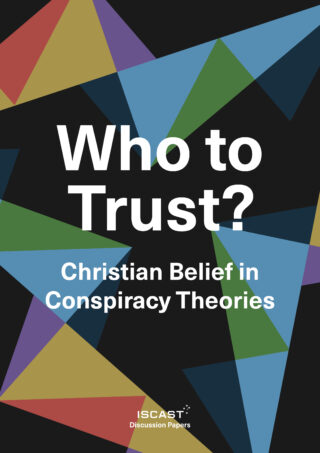A free resource for understanding and addressing Christian belief in conspiracy theories
Download PDF or buy the book
Conspiracy theories are causing conflict in Christian communities. Deep disagreements are produced from mistrust of experts and authorities. Friendships are broken, families are torn apart, and people are hurt. Conspiracists feel unfairly dismissed and stigmatised. People struggle to understand, persuade, or even tolerate each other over these issues.
Why does this happen, and how can we address the concerns of those involved? Who to Trust? surveys recent research and writing on conspiracism. It selects and summarises what is helpful for Christian leaders, Christian knowledge professionals, and Christian conspiracists too.
The four major chapters examine conspiracy theories themselves, the way they affect politics, applicable biblical ethics for Christians, and practical questions about their effects in relationships and communities. Vaccination conspiracies in Australia are used as an exercise in thinking about them, and an appendix proposes questions for better conversations based on these chapters.
Instead of dismissing conspiracy theories or labelling conspiracy theorists as fearful, delusional, or irrational, Who to Trust? suggests that we can find common ground in our Christian concerns for justice, truth, and faithfulness, and that mistrust is a constructive way to understand our conflicts on these issues.
You can access the full paper here, which includes a one-page summary.
Details
- Who to Trust? Christian Belief in Conspiracy Theories
- An ISCAST Discussion paper
- 164 pages, PDF
- ISBN 978-0-6450671-5-6
About the Authors & Publisher
This paper is the work of ISCAST volunteers with a background in science or theology. ISCAST is an Australian network for those interested in the interface of science, technology, and Christian faith.
Media enquiries
Jackie Liu (jackieliu@iscast.org or +61421385018)
